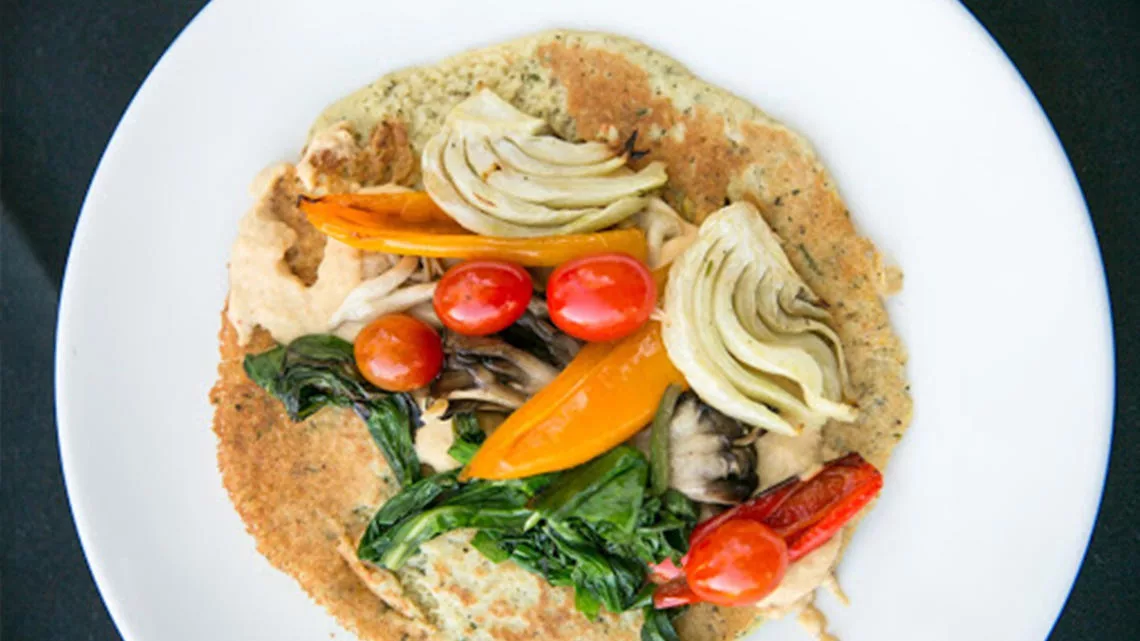Barriers
Perceived taste and enjoyment can be a barrier to healthier food choices. Although culinary confidence and skill are essential to consistently delivering deliciousness, many culinarians have not had specific training or the chance to develop expertise in vegetable and plant-rich cooking.
Description
Google’s Food@Work program features a balanced plant-forward approach, ensuring there is an abundance of choices that are good for the health of people and the planet. The Food Team worked to inspire chefs through collaboration, sharing global cuisines, building innovative techniques in vegetable cooking and supporting operational excellence with validated recipes and training. The program redesigned food spaces and menus to nudge users toward better food choices and eating habits, such as minimizing overeating and food waste and offering foods with appealing names to better position them as the desirable choice. It still includes animal protein in the culinary repertoire but with intentionally reduced frequency and teams work to re-establish norms for a strong value proposition on the plate.
Partners involved
Google works collaboratively with expert organizations such as the World Business Council for Sustainable Development (WBCSD), Yale Center for Customer Insights, EAT Foundation, Culinary Institute of America (CIA), Arizona State University (ASU) Swette Center for Sustainable Food Systems, World Resources Institute (WRI), Better Buying Lab (BBL), LeanPath and numerous others.
Impact
Google has reduced meat consumption on average across the global program. In the Bay Area, for example, reductions in animal protein have resulted in an 11% decrease of our carbon footprint from food between 2017 and 2019. Surveys of consumers show they are happy with their food program and 71% report they eat healthier at work than at home.
Outline

